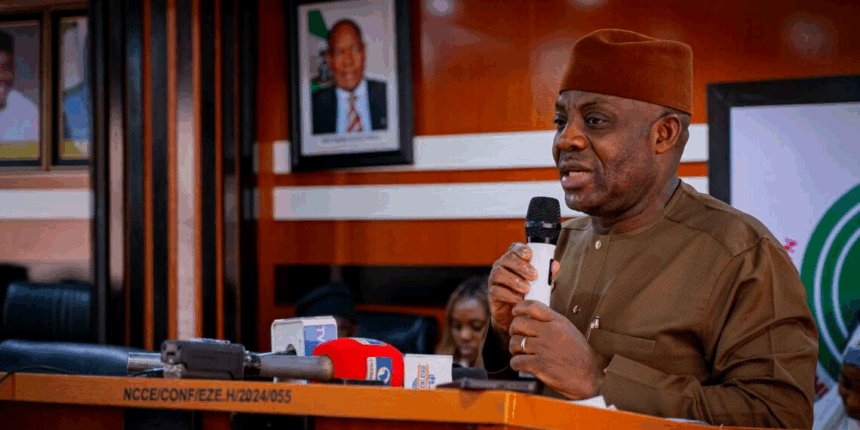-
Federal Government, FG increases annual tertiary admission slots from 750,000 to 1 million.
-
New policy aims to expand access and end years of limited university placement.
-
Education Minister says reform aligns with Renewed Hope Agenda for inclusive education
The Federal Government, FG, has approved a comprehensive reform that raises the annual admission capacity into Nigerian tertiary institutions from about 750,000 to one million students, marking a major shift in the nation’s education access policy.
In a statement signed by the Director of Press and Public Relations at the Federal Ministry of Education, Mrs. Folasade Boriowo, the government said the new framework will create opportunities for an additional 250,000 to 300,000 students each year.
ATTENTION: Click “HERE” to join our WhatsApp group and receive News updates directly on your WhatsApp!
According to the Minister of Education, Dr. Maruf Tunji Alausa, the reform represents a deliberate step under President Bola Ahmed Tinubu’s Renewed Hope Agenda to ensure inclusivity, fairness, and equal access to higher learning.
Dr. Alausa explained that the reform became necessary after years of limited admission slots, which left millions of qualified candidates stranded despite meeting entry requirements.
The minister stated: “Every year, over two million candidates sit for the Unified Tertiary Matriculation Examination (UTME), yet only about 700,000 gain admission.
“This imbalance is not due to lack of ability but outdated entry barriers that must give way to fairness and opportunity.”
He added that the new system was designed to create a broader, fairer, and more transparent process that aligns with global education standards.
The National Guidelines for Entry Requirements into Nigerian Tertiary Institutions have been overhauled to remove barriers while maintaining academic standards.
Universities: Minimum of five credit passes in relevant subjects, including English Language, in not more than two sittings. Mathematics remains mandatory for Science, Technology, and Social Science courses.
READ ALSO: Mathematics No Longer Compulsory for Arts Students’ Admission — FG
Polytechnics (ND Level): Minimum of four credit passes, including English Language for non-science courses and Mathematics for science programs.
Polytechnics (HND Level): Minimum of five credits, including English Language and Mathematics.
Colleges of Education (NCE Level): Four credit passes required, with English mandatory for Arts and Social Sciences, and Mathematics for Science, Vocational, and Technical courses.
Innovation Enterprise Academies (IEAs): To adopt the same requirements as polytechnics, while the National Innovation Diploma (NID) will be phased out and replaced with the National Diploma (ND) for uniformity and credibility.
The National Board for Technical Education (NBTE) has commenced re-accreditation of all IEAs nationwide to ensure compliance with the new admission standards. Institutions that fail to meet the revised benchmarks will face de-accreditation.
Dr. Alausa said harmonising the system would reduce the number of out-of-school youths, strengthen vocational and technical education, and align Nigeria’s tertiary system with global and industry trends.
“The Federal Government remains steadfast in its commitment to inclusive education, human capital development, and youth empowerment under the Renewed Hope Agenda,” he added.

